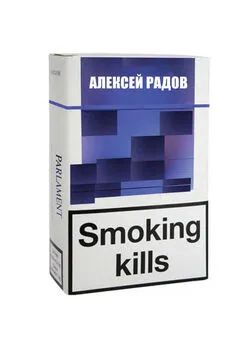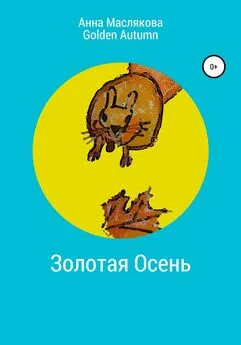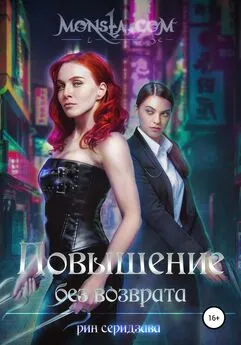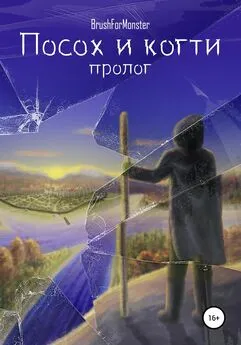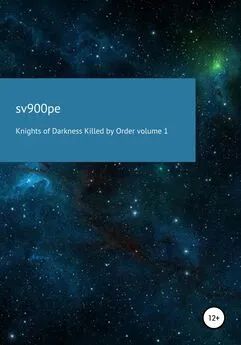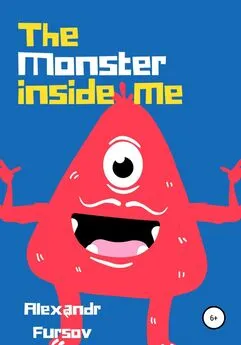Mons Kallentoft - Autumn Killing
- Название:Autumn Killing
- Автор:
- Жанр:
- Издательство:неизвестно
- Год:неизвестен
- ISBN:нет данных
- Рейтинг:
- Избранное:Добавить в избранное
-
Отзывы:
-
Ваша оценка:
Mons Kallentoft - Autumn Killing краткое содержание
Autumn Killing - читать онлайн бесплатно полную версию (весь текст целиком)
Интервал:
Закладка:
How long am I going to be here?
There’s a ruthlessness here, and I see myself reflected in that ruthlessness, it’s my face, my sharp, clean features, the nostrils whose flaring can scare people so, no matter who they are.
Pride.
Am I proud?
Is that time past now?
Now that everything’s still.
I can float here for a thousand years, in this cold water, and be master of this land, and that’s just fine.
The deer need to be culled.
The hares need to be eradicated.
People need to leave their warm, secure water.
New days need to be born.
And I shall be part of them all.
Own them all.
I shall lie here and see myself, the boy that I was.
And I shall do so even if I’m scared. I can admit it now; I’m afraid of that boy’s eyes, the way the light opens the world up to him, in jerks, like the desperate bark of an abandoned dog.
9
Linkoping and district, summer 1969
The world comes into being through the eyes, because if you close them there are no images, and the boy is four years old when he learns to recognise his own eyes, pebble-sized deep-sea-blue objects set at perfect distance from each other in an equally perfectly shaped skull. Jerry realises what he can do with those eyes, he can make them flash so that remarkable miracles happen, and, best of all, he can get the nursery-school teachers to give him what he wants.
His reality is still directly experienced. What does he know about the fact that on this very day, tons of agent orange and napalm are being dropped onto tropical forests where people hide in holes deep underground, waiting for the burning jelly to dig through the ground and destroy them?
For him, warm is simply warm, cold is cold, and the black-painted copper pipe attached to an endless, rough, red, wooden surface is so hot that it burns his fingers, albeit not in a dangerous way, but in a way that’s nice and makes him feel both safe and scared; scared because the warmth in him awakens a feeling that everything can end.
A lot happens in this life.
Cars drive. Trains travel. Boats on the Stangan River blow their whistles.
He lies on the grass in the garden of his grandmother’s cottage, feeling the dense smell of chlorophyll possess him, seeing how the grass colours his knees and body green. In the evenings, when the midges attack, Daddy puts a bright yellow plastic bathtub on the grass and the water is warm on his skin and the air around him is cold, and then he runs alongside the howling grass-scented monster that gives off a sharp smell and Daddy sweats as he pushes it across the grass. The blades sniff out the boy’s feet, spraying grass cuttings from its broad maw; this isn’t a game and Daddy sees the look in his eyes but doesn’t let that put him off. Daddy turns the monster, chasing the boy through the garden, crying: ‘Now I’m going to cut your feet off, now I’m going to cut your feet off’, and the boy runs down to the edge of the forest, feels like running until the lawnmower can no longer be heard.
But inside, in the kitchen with Mummy and Grandma, his eyes work and he realises it’s best to eat buns when they’re fresh, before the mould creeping up from the floor has a chance to make them taste spoiled.
Daddy comes home to the cottage after work.
With bags that clink. And then Mummy wants to sit still. She feels better after Daddy comes with the bags, Grandma too, and they are happy, but not properly happy.
The sun disappears and the heat in the black-painted copper is exchanged for a metallic smell in the chilly stairwell and multicoloured glass marbles rolling in the sand of a sandpit, and then down into a hole, and someone’s in the way, another boy.
Go away. You’re not supposed to be there. And Jerry’s hand flies up, strikes where he means it to, across the nose, and then the blood comes and the boy screams, the boy he’s hit screams out loud and he himself screams: ‘Plaster!’, not: ‘He hit me first.’ He regards himself as too good for a lie like that.
In the world of direct experience there is a dead cat in a rubbish bin by the swings in the park. He once gave that cat some cream.
There are feelings floating in the two rooms of the flat, there are questions directed at him. ‘Do you know that we live in Berga?’ ‘That Daddy works for Saab, putting together planes that can fly through the air faster than words?’ And he recognises the laughter, it lacks warmth, and they sit on the orange and brown patterned sofa, the one they make into his bed each night, and they pour out drinks from the bottles they always have in a bag. Then they talk louder, the air turns sweet and unpleasant, and they look at black-and-white people on a screen, and Mummy can get up in a way that she can’t otherwise, she can fly up from the sofa and they dance, she only does that when they’ve been drinking and he likes watching Mummy dance. But then Daddy starts chasing him, he’s the lawnmower trying to catch him and hit him on his arms and legs, and the boy is four years old, and creeps out of an unlocked front door, into the world outside that is full of life waiting to be conquered; a cat to be buried, a swing to be swung up to the sky, car and trains to be driven, people shouldn’t lie in vomit and pain, shouldn’t chase him anywhere.
So he screams.
He breaks things.
He draws on the walls with crayons.
He gets hold of matches and sets fire to the world, watches his wooden boat burn in the sand, and feelings that he doesn’t know the name of, feelings that might not even have any names, drift through the flames, and the smouldering hull rests on a desolate patch of sand enclosed by a wooden frame.
Daddy’s despair. How the boy’s little body flies into the radiator beneath the living-room window when drunk Daddy stumbles over him. Mummy’s tired blinking eyes.
Pain, which as yet is always new.
Nothing is fixed.
Nothing has set into its final form.
Perhaps that is why nothing is possible.
The boy lies in his bed at night. He is awake. In the August evening there is a hint of the first chill of autumn.
He already knows there is another world, but he doesn’t think about it, he is busy living in the world of directly experienced reality.
There is no reflection as he daydreams in the darkness about killing his father. Killing him with rays that shoot from his blue pebble-eyes. He will make the lawnmower shut up.
Its blades will no longer snap at his heels.
10
The eye, as black as the water, seems to wink at Malin Fors as the head bobs in the gentle, scarcely perceptible waves.
The yellow raincoat is almost luminous in the water.
The throbbing in her own skull.
The dog barking over in the car by the edge of the forest. The sound like distant cannon-fire, as if it were inside a pressure cooker.
The dog was standing by the edge of the moat when they arrived. Barking like crazy, but it didn’t object when it was led to the car, just carried on barking.
Bang, bang.
What can that eye in the water see now? What was the last thing that eye saw?
The bobbing motion of the head, the little snake-like fish around it, the throbbing in Malin’s own head: two things that will give this day its very own insane structure and logic.
Skogsa Castle. She’s driven past the end of the drive many times, but she’s never seen the castle before, never had any reason to drive into the forest and out across the fields. But she’s seen pictures of it in a book about Swedish castles and manor houses in her parents’ apartment by the old Infection Park. A fuck-off great stone box, jam-packed with snobbery, even if there’s something restrained about the building itself. The lines are straight, practically no ornamentation; humility in the face of the dramas that have unfolded here over the years.
Malin is crouching at the side of the moat. Large, smooth rocks that must have come straight from the quarry slope steeply down into the water, the green light from the lanterns reflected in its surface. The fish down there, hundreds of them, not much bigger than sprats, blacker than the water as they move around the body.
Malin has pulled the zip of her GORE-TEX jacket right up, the hood tight around her head, three layers underneath and still she’s freezing, feeling the heavy raindrops hammering the fabric. Zeke had the coat in the car, making a comment about her ancient sweater when he picked her up, asked if she’d bought it at the Salvation Army. When he saw her jeans he grinned: ‘Eastern European fashion’s the next big thing, is it?’
But he didn’t remark upon the fact that he was picking her up from the flat, even if he must have wondered what she was doing there.
The cold helps her head to clear.
Helps her gaze focus, so she can concentrate on the corpse floating on the surface, on the blond hair, on the eye staring up at them.
Zeke by her side.
Wide awake. Curious.
‘How the hell are we going to get him out?’
‘We’ll have to get divers from the fire brigade.’
The report of the body had reached the police station at a quarter past eight. Malin had heard the phone ringing when she got out of the shower and it had had an unmistakable note of urgency, as if the phone had its own consciousness and could change the way it sounded according to the circumstances.
Zeke’s voice: ‘Some farmers have called in to say that they’ve found a man murdered out at Skogsa Castle.’
She had thrown on her clothes and they had set off south towards Skogsa. He had commented on her breath and told her she looked terrible, wondered if she’d been drinking, but she just said she’d had a couple of glasses of tequila yesterday evening, joking that he must have a very sensitive nose.
They had been the first unit on the scene, and as they arrived and parked at the edge of the forest, the large castle doors had opened and out came the two men that she now knows are the tenant farmers, Ingmar Johansson and Gote Lindman.
They had waited where they had been told while she and Zeke looked at the scene and led the dog away, carefully, without contaminating the crime scene. The pair had explained that they were supposed to be hunting deer with Jerry Petersson, but that he hadn’t met them at the agreed time, and that they had found him, or at least what they assumed to be his body, down in the moat.
‘I mean, you can’t really see for sure,’ Johansson had said.
‘But it’s him,’ Lindman had added. ‘He had a coat just like that.’
The corpse in the water.
Jerry Petersson.
Hotshot lawyer. Businessman. The slightly dodgy commercial lawyer who had made a fortune in Stockholm and moved back home when he got the chance to buy Skogsa Castle. Malin had read the profile in the Correspondent .
If it really is him.
The throbbing in her head. The dog’s barking. Two patrol cars had just arrived at the edge of the forest. No holding back with a suspected murder.
Jerry Petersson.
But who else could it be? Malin closes her eyes, feeling her headache, listening to the air, and she imagines she can hear the rain falling on an invisible body, someone whispering words she can’t understand, words that want to make the world comprehensible, easy to understand and absorb, but they vanish before she has time to work out what they mean.
The divers arrived thirty minutes later, and now their red emergency vehicle is parked alongside Zeke’s car, forensics expert Karin Johannison’s blue Mercedes, and Sven Sjoman’s red Volvo. The cars are parked in a clearing on the other side of the moat, a long way from Petersson’s Range Rover and the tenant farmers’ Saab. The journalists have started to appear, and they are standing in a huddle with cameras of all sizes, flashing as though they were some huge lightning-filled stormcloud. They’re shouting at the police, but are ignored.
Читать дальшеИнтервал:
Закладка:
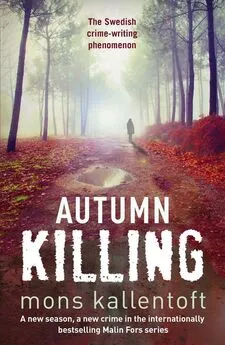

![Альфред Ван Вогт - Чудовище / The Monster [= Пятый вид: Загадочное чудовище; Воскресшее чудовище; Возрождение]](/books/155614/alfred-van-vogt-chudoviche-the-monster-pyatyj-v.webp)
